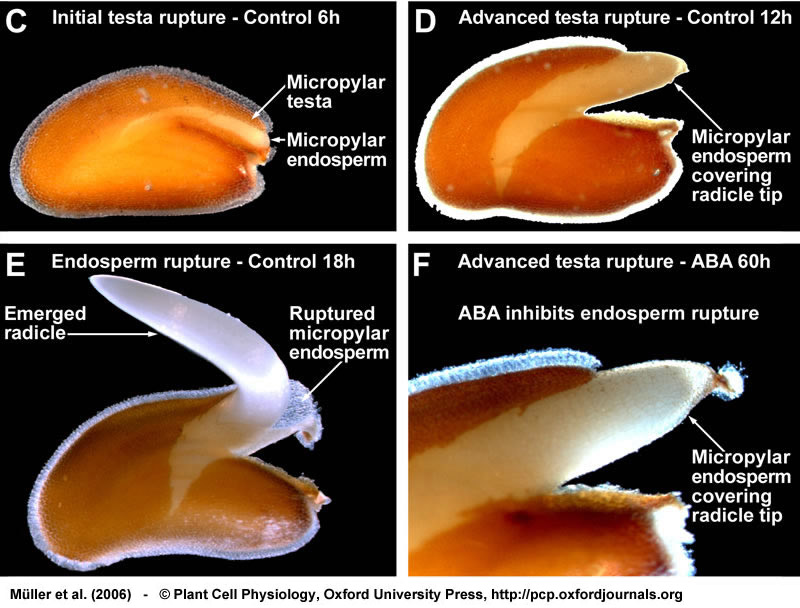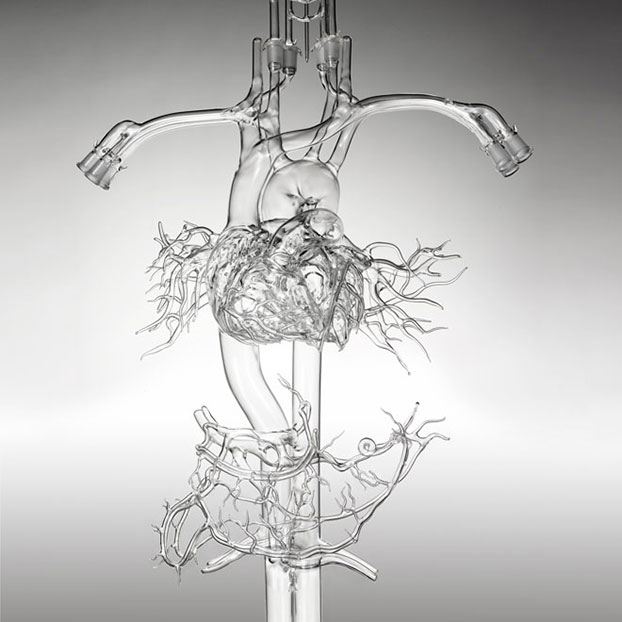Adab (Etiquette) of Sorrower
ادب غم خواران
Discussion Join
Source: http://untiredwithloving.org/adab_sorrower.html
See Also:
http://www.untiredwithloving.org/jacob_mirror.html
http://untiredwithloving.org/dhahak.html
Haqiqa 1 (Reality of how this life operates)
Azizam (My Dearest) know that you were born in tears, and you shall depart this life in throes of death, and in between nothing but medley of joys and sorrows, some days with sense and logic, and other days senseless and remote from your mind:
3:140. Such days (of varying fortunes) We give to people in turns
وَتِلۡكَ ٱلۡأَيَّامُ نُدَاوِلُهَا بَيۡنَ ٱلنَّاسِ وَلِيَعۡلَمَ ٱللَّهُ ٱلَّذِينَ ءَامَنُواْ
Ishara 1 (Pointing)
Imagine people attending a banquette, goblets of joys and sorrows served one after the other, no matter where the guests sitting, no matter what status or honor!
Know that the day of joy and the day of sorrow, are but the same day. It is the mighty ambiguity engine within your Nafs (Self) which distinguishes between these days.
Surat (Shaped Constraint Reality of how human life operates in synchronicity with the other universe)
The odd feelings of joy and sorrow, are the appearance of a Non-Self, touching the verges of ‘you’ from outside the capsule of your Self (Nafs):
53:43: Wa Anna-hu Huwa (IT); (Huwa or IT, Agent Doer omitted) Adh-haka (made/caused to laugh) and made/cause to sob
وَأَنَّهُ هُوَ أَضْحَكَ وَ أَبْكَى
Joy and sorrow are singularities, perforations on the impossible boundary between this universe and the other, through which the emoting vectors appear: one endpoint human being and the other endpoint Allah, glancing along which the ‘feelings’ of joy or sorrow ‘felt’.
The day of joy and the day of sorrow, have two entities in common, as in two endpoints:
1. You
2. That Divine Beloved, Allah
The rest are cosmetics of the life of this world!
Haqiqa 2 (Reality of how record of the living operates)
57:22. No misfortune can happen on earth or in your souls but is recorded in a decree before We bring it into existence: That is truly easy for Allah.
مَآ أَصَابَ مِن مُّصِيبَةٍ۬ فِى ٱلۡأَرۡضِ وَلَا فِىٓ أَنفُسِكُمۡ إِلَّا فِى ڪِتَـٰبٍ۬ مِّن قَبۡلِ أَن نَّبۡرَأَهَآۚ إِنَّ ذَٲلِكَ عَلَى ٱللَّهِ يَسِيرٌ۬
Ishara 2 (Pointing)
Whether frolic or melancholy, Allah has chosen you as a companion! Joy and sorrow are like digits touching your skin as though the beloved companion saying: But I am here with you!
Remark: You do not, cannot choose Allah for a companion, only Allah chooses you as a companion, to claim otherwise is supreme arrogance. To say to treat Allah like a friend is arrogance, to wish that Allah treats you like a friend is better language, or to wish Allah chooses you as a close companion is better:
Al-Ghazali
Ihya’
And the Ghira of Allah (keeping a servant only for ITself/Himself) is their concealment:
My close-friends (Aulia’) are under my cloak (hidden) no one knows them but Me.
إحياء علوم الدين أبو حامد الغزالي
وغيرة الله تعالى على أوليائه تأبى إلا إخفاءهم كما قال تعالى: أوليائي تحت قبابي لا يعرفهم غيري.
Haqiqa 3 (Reality of how sorrowing operates)
The purpose of this companionship is nothing but offering knowledge and guidance, specially in sorrows:
64:11. No kind of calamity can occur, except by the leave of Allah. and if any one believes in Allah, ((Allah)) guides his heart (aright): for Allah knows all things.
مَآ أَصَابَ مِن مُّصِيبَةٍ إِلَّا بِإِذۡنِ ٱللَّهِۗ وَمَن يُؤۡمِنۢ بِٱللَّهِ يَہۡدِ قَلۡبَهُ ۥۚ وَٱللَّهُ بِكُلِّ شَىۡءٍ عَلِيمٌ۬
Adab of Sorrower
Azizam when a guest knocks at your door, you tidy up your house and prepare yourself in best manner of conduct and dress in best fashions to please and to honor, per protocol and etiquette, same way when Azizat (Your Dearest Beloved) arrives at the door of your heart, and when IT knocks at your heart with joys and sorrows, thus prepare your heart and mind to receive this guest of mighty honor and royalty.
Adab 1 (Etiquette of language)
89:15. Now, as for man, when his Lord trieth him, giving him honour and gifts, then saith he, (puffed up), “My Lord hath honored me.”
فَأَمَّا ٱلۡإِنسَـٰنُ إِذَا مَا ٱبۡتَلَٮٰهُ رَبُّهُ ۥ فَأَكۡرَمَهُ ۥ وَنَعَّمَهُ ۥ فَيَقُولُ رَبِّىٓ أَكۡرَمَنِ
89:16 But when He trieth him, restricting his subsistence for him, then saith he (in despair), “My Lord hath humiliated me!”
وَأَمَّآ إِذَا مَا ٱبۡتَلَٮٰهُ فَقَدَرَ عَلَيۡهِ رِزۡقَهُ ۥ فَيَقُولُ رَبِّىٓ أَهَـٰنَنِ
Cure for such ailment of improper language in presence of the Divine Beloved: honoring the orphans, insist on feeding the hungry, leave others’ inheritance untouched, love not to accumulate:
89:17. Nay, nay! but ye honor not the orphans!
كَلَّاۖ بَل لَّا تُكۡرِمُونَ ٱلۡيَتِيمَ
89:18. Nor do ye encourage one another to feed the poor!
وَلَا تَحَـٰٓضُّونَ عَلَىٰ طَعَامِ ٱلۡمِسۡكِينِ
89:19. And ye devour inheritance – all with greed
وَتَأۡڪُلُونَ ٱلتُّرَاثَ أَڪۡلاً۬ لَّمًّ۬ا
89:20. And ye love wealth with inordinate love!
وَتُحِبُّونَ ٱلۡمَالَ حُبًّ۬ا جَمًّ۬ا
Adab 2 (Etiquette of language in times of plenty)
When you are in comfort and well to do, do not say I gained all this by my abilities, or education, or hard work, or knowledge or talents:
28:78. He (Qarun/Korah the wealthy Hebrew) said: “This has been given to me because of a certain knowledge which I have.”
قَالَ إِنَّمَآ أُوتِيتُهُ ۥ عَلَىٰ عِلۡمٍ عِندِىٓۚ
Instead in times of plenty, in times of happiness, say:
27:40. he (Solomon) said: “This is by the Grace of my Lord! to test me whether I am grateful or ungrateful! and if any is grateful, truly his gratitude is (a gain) for his own soul; but if any is ungrateful, truly my Lord is Free of all Needs, Supreme in Honor !”
قَالَ هَـٰذَا مِن فَضۡلِ رَبِّى لِيَبۡلُوَنِىٓ ءَأَشۡكُرُ أَمۡ أَكۡفُرُۖ وَمَن شَكَرَ فَإِنَّمَا يَشۡكُرُ لِنَفۡسِهِۦۖ وَمَن كَفَرَ فَإِنَّ رَبِّى غَنِىٌّ۬ كَرِيمٌ۬
Adab 2
Let joy=sorrow and let hope=despair, IT is your Divine Beloved Hu gives, and again IT is the same Beloved Hu takes, there is no one else who takes and there is no one else who gives, be hundred percent assured:
57:23. In order that ye may not despair over matters that pass you by, nor exult over favours bestowed upon you. For Allah loveth not any vainglorious boaster
لِّكَيۡلَا تَأۡسَوۡاْ عَلَىٰ مَا فَاتَكُمۡ وَلَا تَفۡرَحُواْ بِمَآ ءَاتَٮٰڪُمۡۗ وَٱللَّهُ لَا يُحِبُّ كُلَّ مُخۡتَالٍ۬ فَخُورٍ
Do not be overly confident when all things working for you, and do not be overly depressed in difficult times. Know both circumstances are the same.
Adab 3 : Sabr-un Jamil-un ( Divine Beauty in form of patience)
Sabrun-Jamil means you are beautified while suffering badly due to some hard circumstance, and yet you are dyed by the Divine Beauty since Allah is looking at you attentively and quite closely.
Sabrun Jamilun: Divine Beauty in form of patience
Tustari
12:18.‘And they (the brothers) brought his (Joseph’) shirt with false blood, (Jacob) said: Indeed your Nafs (Selves) has belittled an affair (a huge crime) and because of that Sabrun-Jamilun (Beautiful Patience)’:
Sabrun-Jamil is patience while in the state of Ridha (Assent, i.e. no complaints).
Q: What is the signature sign of Sabrun-Jamil?
A: There is no unhappiness or anxiety while suffering.
Q: Where does the beauty enters to this patience?
A: Due to the Ma’refa (Cognizance) that for sure Allah is with you like unto a cup that on top is patience (bitter drink) and at the bottom of the cup undisolved honey! I am amazed at the person who is not enduring with patience about the undesirable circumstances since Allah has said: ‘For sure Allah with the patient’ [2:153]
Adab 4
Sorrowing and complaining only to Allah.
12:86. ‘(Jacob) said: my complaints public sorrowing and sorrows are only for Allah, and I know from Allah what you do not know’: Jacob complained ‘Ila (Towards) Allah and not Min (From) Allah, since the one that complains ‘Ila (Towards Allah) indeed shall reach (Allah), and the one that complains Min (From) Allah shall part from Allah.
Jacob was carried comfortably by his Sirr (Divine Observatory) and his soul, that for sure he knew from Allah about the veracity of his circumstances i.e. Allah wished them to be as such and they were not acts of evil men, and that is the meaning of the verse: 12:86. ‘and I know from Allah what you do not know’.
As people beg you for mercy and solace
I beg you to complain to you, and then do listen!
* تفسير لطائف الإشارات / القشيري (ت 465 هـ) مصنف و مدقق
قراءة الآية
فتح صفحة القرآن
الانتقال الى صفحة القرآن
{ قَالَ إِنَّمَآ أَشْكُو بَثِّي وَحُزْنِي إِلَى ٱللَّهِ وَأَعْلَمُ مِنَ ٱللَّهِ مَا لاَ تَعْلَمُونَ }
شكا إلى الله ولم يَشْكُ مِنَ اللَّهِ، ومَنْ شكا إلى الله وَصَلَ، ومن شكا من الله انفصل.
ويقال لمَّا شكا إلى الله وَجَدَ الخَلَفَ من الله.
ويقال كان يعقوبُ – عليه السلام – مُتَحَمِّلاً بنفسه وقلبه، ومستريحاً محمولاً بِسِرِّه وروحه؛ لأنه عَلِمَ من الله – سبحانه – صِدقَ حالِه فقال: { وَأَعْلَمُ مِنَ اللَّهِ مَا لاَ تَعْلَمُونَ } وفي معناه أنشدوا:
إذا ما تمنَّى الناسُ روْحاً وراحةً تمنَّيْتُ أن أشكو إليكَ فَتَسْمَعَا
Haqqi
12:86. ‘My Bath-thi (Public Sorrows)’: Bath is the worst suffering that its sufferer cannot endure it and broadcast it to the people i.e. going from one person to another complaining.
{ قَالَ إِنَّمَآ أَشْكُو بَثِّي وَحُزْنِي إِلَى ٱللَّهِ وَأَعْلَمُ مِنَ ٱللَّهِ مَا لاَ تَعْلَمُونَ }
{ قال انما اشكو بثى } البث اصعب الهم الذى لا يصبر عليه صاحبه فيبثه الى الناس اى ينشره فكأنهم قالوا له ما قالوا بطريق التلسية والاشكاء فقال لهم انى لا اشكو ما بى اليكم او الى غيركم حتى تتصدوا للتسلى وانما اشكو همى { وحزنى الى الله } ملتجأ الى جنابه تضرعا لدى بابه فى دفعه
رازكويم بخلق وخوار شوم باتو كويم بزر كوار شوم
والحزن اعم من البث فاذا عطف على الخاص يراد به الافراد الباقية فيكون المعنى لا اذكر الحزن العظيم والحزن القليل الا مع الله.
Ibn Ajiba
Jacob did not sorrow for the lack of the Joseph’s physicality, only sorrowed about the lack of Suhud (Observation) of Divine Beauty i.e. Baha’ (Overwhelming Beauty) that made Tajalli (Lucent Manifestation) from Joseph.
12:86. ‘(Jacob) said: my complaints public sorrowing and sorrows are only for Allah’ is one corner of the Sufism’s foundation, even better it is the very essence of Sufism.
الإشارة: لم يتأسف يعقوب عليه السلام على فقد صورة يوسف الحسية، إنما تأسف على فقد ما كان يشاهد فيه من جمال الحق وبهائه، في تجلي يوسف وحسن طلعته البهية، وفي ذلك يقول ابن الفارض:
عَيْني لِغَيْرِ جَمَالِكُمْ لاَ تَنْظُرُ وسِوَاكمُ فِي خَاطِري لا يَخطرُ
فلما فقد ذلك التجلي الجمالي حزن عليه، وإلا فالأنبياء ـ عليهم الصلاة والسلام ـ أولى بالغنى بالله عما سواه. فإذا حصل للقلب الغنى بالله لم يتأسف على شيء، ولم يحزن على شيء؛ لأنه حاز كل شيء، ولم يفته شيء. ” ماذا فقد من وجده، وما الذي وجد من فقده “. ولله در القائل:
أَنَا الفَقِيرُ إِليْكُمُ والْغَنِيُّ بِكُمُ وَلَيْس لِي بَعدَكُمُ حِرْصٌ عَلى أَحدِ
وهذا أمر محقق، مذوق عند العارفين؛ أهل الغنى بالله. وقوله: { إنما أشكو بثي وحزني إلى الله }: فيه رفع الهمة عن الخلق، والاكتفاء بالملك الحق، وعدم الشكوى فيما ينزل إلى الخلق… وهو ركن من أركان طريق التصوف، بل هو عين التصوف. وبالله التوفيق.
© 2015-2002, Dara O Shayda










 Zahir vs. Batin: Perceptible vs. Intrinsic
Zahir vs. Batin: Perceptible vs. Intrinsic